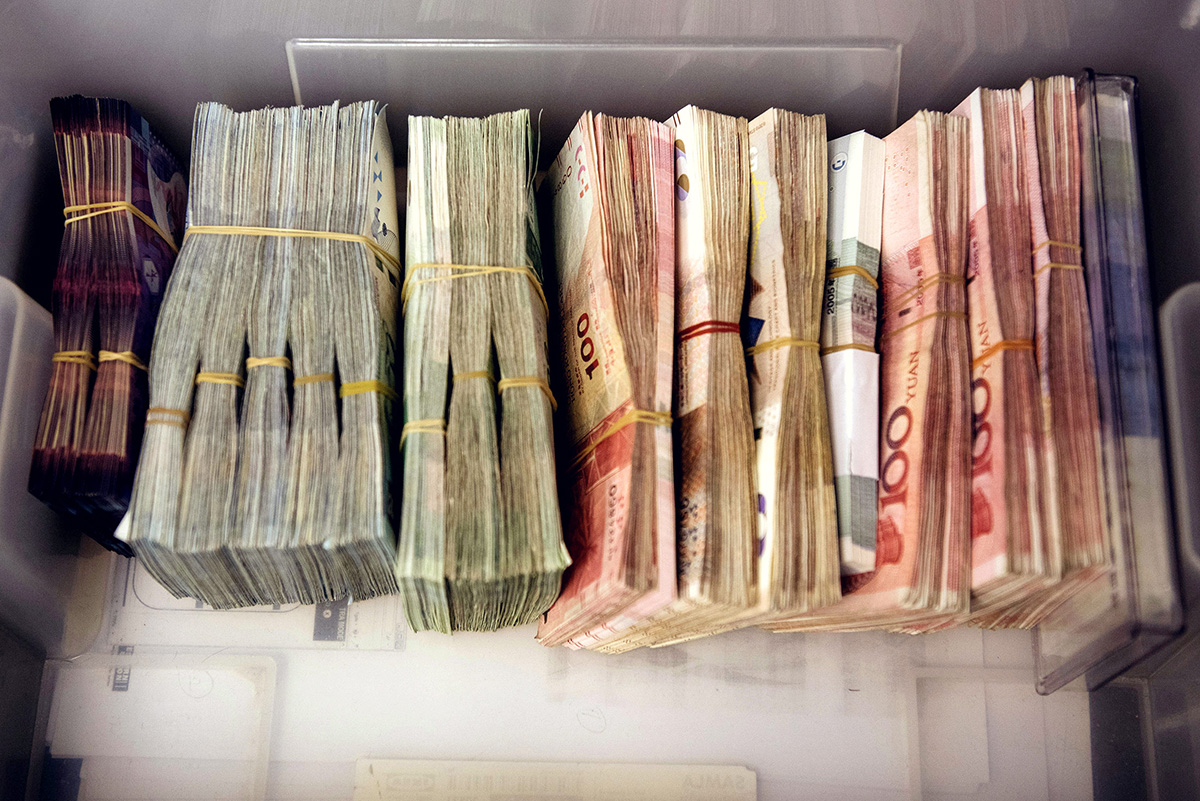The North Korean nuclear crisis dragged Asian markets further into the red on Wednesday as world powers struggled to agree how to deal with the isolated state, while doubts about further US interest rate hikes dragged the dollar.
With few other catalysts to deflect attention from the face off with Pyongyang, investors continue to flock to safe-haven assets, sending gold to near one-year highs and the yen flying.
UN Secretary General Antonio Guterres warned against "confrontational rhetoric" towards Kim Jong-Un's regime and called for a single strategy to address the crisis issue following Sunday's apparent test of a massive nuclear device.
While the heated rhetoric of the previous two days has cooled, there are fears of a fresh flare up as the North is feared to be preparing another missile launch to mark its foundation day on Saturday.
US markets returned from their long Labour Day weekend on Tuesday to finish sharply lower and US Treasury yields are at one-year lows.
In Asia on Wednesday Seoul shed 0.3 percent, Tokyo ended the morning session 0.3 percent lower and Hong Kong gave up 0.9 percent.
Shanghai was 0.4 percent lower and Sydney gave up 0.1 percent, while Singapore, Wellington and Taipei were also lower.
The dollar, already down against the safe-bet yen on geopolitical concerns, took another hit from comments by Federal Reserve officials playing down the chances of a third rate hike of the year.
Fed governor Lael Brainard said the central bank had continued to miss its two percent inflation target for the past year and added: "My view is that we should be cautious about tightening policy further until we are confident inflation is on track to achieve our target."
In early trade Wednesday the dollar was at 108.70 yen, heading towards its weakest levels of the year.
Stephen Innes, head of Asia-Pacific trading at OANDA, said that while the North Korea crisis was clearly weighing on the dollar, "an unabashedly dovish Fed Brainard was unquestionably the reason for the deeper USDJPY move into the 108s".
Adding to the sense of unease is concern about US President Donald Trump's chances of pushing through his tax-reform plans, with Capitol Hill already struggling with a crammed legislative calendar.
And Trump's decision Tuesday to end an amnesty programme for 800,000 people brought to the United States illegally as young children will add to the backlog.
On oil markets both main contracts eased in Asia after surging Tuesday – WTI jumped around three percent and Brent put on two percent – on reports Russia and Saudi Arabia were considering extending a production cut.
Also refineries shut down by Hurricane Harvey began to come back online in the US Gulf Coast, helping clear a backlog of the commodity.
Eyes are now on the release of crude data from industry group the American Petroleum Institute later in the day followed by the US Energy Information Administration Thursday. – AFP
